In a surprise development kept secret until their meeting was over, Indian and Pakistani National Security Advisers led delegations for talks in Bangkok on Sunday.
In a joint press release announcing the meeting between Pakistan NSA Lt. Gen (Retd.) Nasir Khan Janjua and Ajit Doval, Foreign Secretaries Aizaz Ahmad Chaudhury and S. Jaishankar, and other officials, the MEA said the discussions covered “peace and security, terrorism, Jammu and Kashmir, and other issues, including tranquillity along the LoC.”
The statement said the parleys were pursuant to the meeting between PMs Narendra Modi and Nawaz Sharif in Paris on November 30.
India-Pakistan dialogue process back on track
Senior officials have confirmed to The Hindu that External Affairs Minister Sushma Swaraj will visit Islamabad this week, leading the Indian delegation to the ‘Heart of Asia’ donor conference on Afghanistan. Ms. Swaraj, whose visit is yet to be announced, will leave on Tuesday for a two-day visit from December 8 and is expected to meet the Pakistani leadership.
The meeting of NSAs in Bangkok and Ms. Swaraj’s Islamabad visit are part of the government’s decision to reset the engagement with Pakistan that has suffered after the cancellation of Foreign Secretary talks in 2014 and NSA talks earlier this year, and will ensure that the governments meet at four levels: of PM, EAM, NSA and Foreign Secretaries within a span of 10 days.
The developments were welcomed by the Opposition parties, including the National Conference in Jammu and Kashmir. However Congress spokesperson Manish Tewari questioned the secrecy over the talks, calling it a “grand betrayal of the position the BJP government held so far.”
Sources told The Hindu there were several reasons for holding the NSA talks away from the public glare in Thailand, and came after both sides agreed to compromise on their previous positions that led to the cancellation of NSA talks in August.
While the government agreed to include Jammu and Kashmir in the talks along with terrorism, which it had earlier refused to, the venue of a third country obviated Pakistan’s requirement of meeting with the Hurriyat conference.
The statement issued in Bangkok said the talks “were held in a candid, cordial and constructive atmosphere” and “It was agreed to carry forward the constructive engagement.”
According to the sources, some of the details of the Bangkok dialogue were ironed out between the existing channels of communication between the NSA and Pakistan High Commissioner to India Abdul Basit, and through Foreign Secretary S. Jaishankar and Indian High Commissioner in Islamabad TCA Raghavan with the Pakistani Foreign Ministry.
Reliable sources also indicated that Indian NSA Ajit Doval may have spoken directly to his Pakistani interlocutor Lt. Gen. Nasir Khan Janjua prior to the talks.
Cricket series to return?
The newfound bonhomie between Delhi and Islamabad has also raised hopes from the cricket authorities over the possibility of a series to be played between India and Pakistan later this month.
The Delhi cabinet on Thursday cleared two amendments to the Delhi Jan Lokpal Bill, 2015.
The amendments are in line with those proposed by social activist Anna Hazare, who Aam Aadmi Party leaders had visited after the bill was tabled in the assembly.
One amendment proposes a seven-member panel to select two members and chairperson in the institution of Jan Lokpal.
The original bill said the panel consisting chief minister, leader of opposition, assembly speaker and Delhi High Court chief justice will select the members and chair of Jan Lokpal.
Now, the proposed new members will include another judge from the high court, any eminent personality selected the rest of the committee members and the Lokpal chairman from the next term.
For removal of Lokpal, there would be a high court enquiry first before referring the matter to the assembly, two-thirds of the Delhi assembly can vote to remove the Lokpal.
A reliable source had stated that either Chief Minister Arvind Kejriwal or his deputy Manish Sisodia will announce today that about the changes being made in the Bill proposed by Hazare.
Mumbai, Dec 2: The financial condition of Maharashtra is reeling under severe conditions with more than a debt of more than Rs 3 lakh crore, and a revenue deficit to the extent of 7,000 crore. With the economy cornered in a poor shape, the Maharashtra state government is experimenting with direct democracy in a bid to acquire ‘out of the box’, innovative and expert opinion from the general masses in order to improve the financial environment. (ALSO READ: Arvind Kejriwal’s Janta Ka Budget: Delhi Chief Minister seeks public opinion on budget)
The notification was cleared by the Maharashtra cabinet on Monday. It proposes to include 27 of the best suggestions provided by the citizens and incorporate it in the fiscal budget prepared for the year 2016-17. To register their suggestions, the citizens could write to – “The Finance Minister or additional chief secretary, finance, Finance department, Mantralaya, Madam Cama Road, Hutatma Rajguru Chowk, Mumbai – 400032.” People are also provided the option of sending their suggestion online on the following website: ‘http://aaplesarkar.maharashtra.gov.in’.
In order to lure the citizens to provide genuine, well-thought, innovative and practical solutions, the government has announced an award prize of Rs 10 lakh to the person whose suggestion would be regarded as the best. The second best would be granted Rs 7.50 lakh by state exchequer, while the remaining 25 selected suggestions would garner Rs 1 lakh to the provider.
This participative form of budget preparation is replicated from the concept of ‘AAP ka budget’ introduced by Delhi Chief Minister Arvind Kejriwal. The Aam Aadmi Party government held mohalla sabha in various parts of the capital listening to the opinion of general public before preparing the final draft of budget. Kejriwal, along with his deputy Manish Sisodia, himslef attended a number of sabhas listening to the ideas provided by the people. The subsequent state budget released was termed as ‘Janta ka budget’, claiming to have incorporated the suggestions of electorates.
Ahmedabad: Counting of votes for the crucial local bodies polls in Gujarat, a litmus test for the ruling BJP against the backdrop of Patel quota agitation, will be conducted today.
BJP wins Bhavnagar municipal elections, secures 34 out of 52 seats; Congress gets 18 seats
Hardik Patel’s associate and sedition accused Neelesh Arwariya’s wife wins from Morbi
Congress captures Botad zila panchayat
Congress wins Mehsana municipality
Congress wins ‘zila panchayat’ in Junagarh
BJP wins both the municipalities of Gandhinagar
Congress wins a municipality in Amreli district
BJP leading on 11 municipalities
BJP does well in cities, Congress does well in rural areas
Congress wins panchayat elections in Rajkot, Surendranagar, Gandhinagar, Morbi and Amreli
BJP wins Bhavnagar municipality
BJP wins on Porbandar municipality
In Valsad ‘zila panchayat’; Congress ahead on 6 seats; BJP on 5
In HM Rajinibhai Patel’s area Bahuchara, Congress ahead on 9 seats in Taluka Panchayat counting, BJP ahead on only 1 seat
Bhavnagar’s mayor Babubhai Solanki loses
Congress leads on 17 out of 31 ‘nagar panchayats’
Ahmedabad’s mayor Meenakshiben Patel wins
Congress loses in Bharuch which is party leader Ahmed Patel’s bastion
BJP attains massive lead in Ahmedabad, Surat, Vadodara, Bhavnagar municipalities. Close fight between Congress and BJP in Rajkot
Ahmedabad BJP 44, Congress 8
Surat Municipality BJP 49, Congress 35
Baroda Municipality BJP 13, Congress 3
Rajkot Municipality BJP 04, Congress 1
Bhavnagar Municipality BJP 09, Congress 09
Jamnagar Municipality BJP 16, Congress 04
BJP wins in Surat’s Kakodara municipality, celebrations in Gandhi Nagar
BJP ahead on all 6 municipal corporations
BJP wins from Vadodara municipal corporation
Surat: BJP 19, Congress 16
Ahmedabad: BJP 53, Congress 17
Bhavnagar mayor Babubhai of BJP loses election against Congress
Gujarat Civic Polls trends so far: Vadodara-BJP 12,Congress 10
Counting begins, BJP takes early lead
Voting for six municipal corporations was held on November 26, while that for 31 district panchayats, 230 taluka panchayats and 56 municipalities was held on November 29.
The six municipal corporations registered only 45 per cent voter turn-out, but elsewhere it was over 60 per cent.
The State Election Commission had made all the preparations for the counting at several places across the state, officials said.
The elections are being seen as a challenge for the BJP and the Chief Minister Anandiben Patel, as they come after the Patel quota stir. These are also the first major elections in the state after Anandiben took over from Narendra Modi.
The Congress is hoping to make a comeback in the state, cashing in on resentment of the Patel community against BJP.
Patel leaders who are demanding inclusion in the OBC quota had appealed the community members to vote against BJP and for Congress ahead of the elections.
All the six municipal corporations — Ahmedabad, Surat, Vadodara, Rajkot, Jamnagar, and Bhavnagar — are at present controlled by the BJP. Most of the other local bodies in rural and semi-urban areas too are controlled by the BJP.
The SEC on Tuesday conducted re-polling at a booth each in Dahod and Mahisagar districts.
(1 Dec) Lok Sabha on Monday witnessed repeated adjournments and protests as it debated the issue of intolerance. Similar scenes are expected to continue in the House on Tuesday, as both sides – the Opposition and the treasury benches – will continue their verbal attack against each other. Congress Vice President Rahul Gandhi is expected to participate in day two of the discussion in Lok Sabha. Rajya Sabha, which will conclude the discussion on the Indian Constitution on Tuesday, will also initiate a discussion on intolerance, where Congress leader Ghulam Nabi Azad and CPI-M’s Sitaram Yechury are likely to hit out against the government. Tharoor lauds Narendra Modi’s way of handling the crowd during the bomb blast at his Patna rally before Lok Sabha elections. ” I want to know the same what has gone wrong with Modi, who displayed great sense of responsibility during the bomb blast at his rally to avoid panic,” Tharoor. We cannot promote Make in India abroad while promoting intolerance in the country:
Tharoor Congress leader Shashi Tharoor speaks in Lok Sabha on intolerance. BJP MP Kirron Kher thanks NDA govt for respecting film industry. : NCP MP Supriya Sule asks the ruling party to rise to the occasion and introspect over issues like ‘ghar wapsi’ and ‘award wapsi’. Rajnath ji, please tell your ministers and colleagues to think before you talk, says Sule. Let’s not run down Shah Rukh Khan and Aamir Khan. They have worked globally: Sule. Speaking during the intolerance debate in Lok Sabha, Galla said politicians must stop dividing people on the basis of caste and religion as it only hurts the nation. “We are misusing the word intolerance,” Galla said, adding that issues like the murder of Dabholkar or the Dadri lynching must be condemned but at the same time questioned how the NDA government at the Centre could be responsible, saying law and order is a state issue. “State governments must take action against such elements and the role of the Centre, if any, must be proved before allegations against the Centre,” Galla said. Speaking on the discussion of India’s commitment to the Indian constitution, O’Brien quoted MS Golwakar, saying the Modi government must clarify what its stand on the Indian Constitution is.
“The non-Hindu people of Hindustan must either adopt Hindu culture and language, must learn and respect and hold in reverence the Hindu religion, must entertain no idea but of those of glorification of the Hindu race and culture . In a word they must cease to be foreigners, or may stay in the country, wholly subordinated to the Hindu nation, claiming nothing, deserving no privileges, far less any preferential treatment-not even citizens’ rights.” M. S. Golwalkar had said. “More that 3000 farmers are committing suicide in Maharashtra, my question to the government is when are they going to release funds to better the situation.” Chavan was speaking on the impact of climate change on farmers. In his response, Agriculture Minister Radha Mohan Singh said the Centre has spoken to state government’s across the country on the issue. “Our team has returned from Maharashtra and in two or three days they will have a meeting. we will address all issues,” Singh said. Opposition MPs took the opportunity to raise concerns about communal violence during the Question Hour forcing Speaker Sumitra Mahajan to intervene and urged MPs to restrict their ‘statements’ to ‘questions.’ Responding to the questions, MoS Home Kiren Rijiju said there were cases of violence that were happening across the country, but it needs to be determined which cases were communal and which were not. Rijiju said the government had no panel to look into cases of communal violence.
As the BJP’s parliamentary party meeting ended, PTI reports that BJP MPs have been instructed not to make any provocative statement that could disrupt the functioning of the House. “BJP MPs told not to make provocative statements as it deflects from PM Narendra Modi’s developmental agenda,” Union Minister Mukhtar Abbas Naqvi said. The government is banking on the support of the Opposition to push important legislation like the GST Bill. Earlier this morning, Left parties protested against the government’s handling of yesterday’s developments in the House. The protests were led by Rajya Sabha MP Sitaram Yechury. BJP MPs met this morning to discuss their strategy ahead of what is expected to be a stormy day in Parliament, given Lok Sabha and Rajya Sabha will both debate the issue of ‘intolerance’. BJP Parliamentary Party meeting underway in Parliament. pic.twitter.com/kTfw8jgihf – ANI (@ANI_news) December 1, 2015 Watch video: Decoding the ‘intolerance’ debate in Parliament On Monday, Lok Sabha witnessed clashes and repeated adjournments as it took up the debate on ‘intolerance’ with the opposition targeting the government and triggering a storm after a CPI(M) member attributed ‘Hindu leader’ comments to The comments by Mohd Salim, who cited an Outlook magazine report while initiating the debate on ‘intolerance, led to a deadlock with the ruling side demanding that he either withdraw these comments or apologise. The logjam, because of which the House was adjourned four times, was resolved in the evening after Speaker Sumitra Mahajan expunged the remarks related to the allegations.
This paved the way for resumption of the debate during which opposition parties like CPI(M) and Congress attacked the government, alleging that intolerance had increased since the NDA government came. BJP hit back by saying that incidents, which were being projected by the opposition as examples of ‘intolerance’, had been taking place in the country for decades. Its member Meenakshi Lekhi also cited Home Ministry figures to insist that incidents of communal violence had come since NDA came to power. In Rajya Sabha, the Opposition raked up the “intolerance” issue to target the government in the society even before the NDA rule which needed to be identified and dealt with firmly, instead of generalising it. Members of the opposition parties like Congress, NCP and BSP sought to corner the government citing incidents of violence against minorities and dalits to suggest “anarchy” and asked Prime Minister Narendra Modi to take strict action against ruling party members for “provocative” comments. BSP chief that Union Minister V K Singh should be “jailed” for his ‘dog’ remarks after the killing of two Dalit children in Haryana. Parliamentary Affairs Minister M Venkaiah Naidu said such incidents “have been happening” and not started overnight after Narendra Modi became Prime Minister. “There is some amount of intolerance in the society, in different areas. That has to be identified, it has to be localised, it has to be dealt with firmly. Instead of that, we are making it generalised,” he said as he referred to instances of killing of dalits and writers in certain states. “Some people making out of turn statement, we have to condemn, we have to isolate them. they have to be condemnd and disowned,” he said.
(1 Dec) Kathmandu, Dec.1 (ANI): The Nepal Parliament were adjourned on Tuesday for five days after Madhesi lawmakers repeatedly obstructed proceedings over disagreement with the Revised Bill of the new Constitution. The agitating Madhes-based parties continuously demanded that the government of Prime Minister K.P. Sharma Oli address their issues at the earliest. The lawmakers of the Madhesi-based parties trooped into the well of the House and surrounded Speaker Onsari Gharti’s rostrum and chanted protest slogans. The repeated obstructionist behaviour of the Madhesi lawmakers forced Speaker Gharti to adjourn the meeting till 1 p.m. on December 6. Earlier, the meeting of Parliament was adjourned till Tuesday following obstruction by the Nepali Congress, reports the Himalayan Times. NC lawmakers had on Monday objected to Speaker Onsari Gharti after she provided Federal Socialist Forum-Nepal (FSF-N) Chairman Upendra Yadav with time to speak in the House. They had demanded that their party should be given first chance to speak as per the set parliamentary practice.
(30 Nov) Mumbai: Maharashtra Chief Minister Devendra Fadnavis on Monday launched the first phase of the Mumbai surveillance project under which 1200 cameras have been installed at 434 locations across South Mumbai. The project, which is being implemented by Larsen and Toubro (L&T), was flagged by the former Congress-led UPA government in Maharashtra following the 26/11 Mumbai terrorist attack, which claimed 166 lives. Fadnavis had earlier said that his government had made significant progress in the project, which has been pending for the last seven years. He also said that the project would be completed in 2016. The entire project involves the installation of 6,000 CCTV cameras in Mumbai at a cost of Rs 949 crores.
Lok Sabha adjourned for an hour following a CPI(M) member’s allegation against Home Minister Rajnath Singh. CPI(M) Politician Mohammed Salim alleged Rajnath for making a statement saying that India got its first “Hindu ruler” after 800 years. Rajnath was quick to deny the allegations and said that he was deeply hurt by Salim’s remark. Mohammed Salim replied saying that he was quoting from a magazine interview and that if he (Rajnath) didn’t make the statement then he should sue the publication
Normally pro-Modi, Baba Ramdev has made a shocking attack on Modi government, saying black money has increased under the BJP dispensation.
He was speaking in ABP News programme Press Conference, which will be telecast at 8 pm today. He said black money is of two types-one that emanates from scams and others by tax evasion.
He didn’t tell when PM Modi’s promise of giving Rs 15 lakh to every citizen would be fulfilled, but he said he had full faith on the government.
The Centre announced that only 638 taxpayers had declared
undisclosed foreign assets worth Rs 3,770 crore -demolishing the tall claims of the government on bringing back all the black money supposedly stashed abroad.
The finance ministry said in a statement that the figures were subject to final reconciliation. The compliance window for making the declarations had been open for three months between July 1 and midnight of September 30.
The taxpayers who have disclosed foreign assets will have to pay a 30 per cent tax and a 30 per cent penalty on the declared amount.
The government is likely to receive Rs 2,262 crore by December 31.
The payout is just over Rs 18 per Indian – a far cry from the Rs 15 lakh that was seared into the collective psyche during the heat and dust of last year’s general election.
Top Congress leaders Sonia Gandhi and Manmohan Singh today met Prime Minister Narendra Modi at his Race Course Road residence. On the second day of the Winter Session of Parliament came the thaw. The ice between the ruling coalition and the main Opposition, the Congress, broke after a long time when Prime Minister Narendra Modi invited Congress president Sonia Gandhi and former Prime Minister Manmohan Singh to the Prime Minister’s residence to discuss the Goods and Services Tax. Even before the meeting, the Prime Minister struck a reconciliatory note in his speech in Lok Sabha by calling for consensus on issues of national interest.
The government, often accused of being unilateral in decisions because it enjoys majority in the Lower House, has put the GST legislation on fast track. It is clear that the government wants to get done with this GST business as soon as possible and hopes to implement it by the next financial year. Based on the experience of countries where GST isalready in action, the government knows the implementation of GST generally will lead to an initial backlash as things are bound to get slightly expensive with the new levy. The sooner the better. The government doesn’t want it to hang fire and singe it in a big election year. The meeting between the leading lights of the government and the opposition saw the two parties discussing other issues as well. In the major reach-out to the main Opposition, the Prime Minister invited Gandhi and Singh over tea at his Race Course Road residence around 7 PM.
“Former PM Dr. Manmohan Singh & Congress President Smt. Sonia Gandhi meet PM. Top ministers are present at the meet,” the PMO said in a tweet. &; PIB India (@PIB_India) November 27, 2015 Finance Minister Arun Jaitley and Parliamentary Affairs Minister M. Venkaiah Naidu were also present at the meeting. “Former PM Dr. Manmohan Singh & Congress President Smt.Sonia Gandhi meet PM. Top ministers are present at the meet,” the PMO said in a tweet. The meeting lasted about 45 minutes. Jaitley had told the media yesterday that Modi was willing to speak to everyone to get the tax law through. Jaitley, who needs Parliament approval for the GST Bill in the Winter Session to roll out the new indirect tax regime as scheduled from April 1, had said he has spoken to “almost all Congress leaders” on the issue. “We have absolutely no hesitation even at the level of the Prime Minister. We have never had in it in the past, we don’t have it (now). He is willing to speak to everyone,” he had said. Congress had stalled passage of the GST Constitution Amendment Bill in the last session of Parliament over its demand that a revenue-neutral rate not higher than 18 per cent be mentioned in it.
It is also opposed to states being given powers to levy additional 1 per cent tax on supply of goods over and above GST rate. GST Logjam Congress’ three demands 1. GST rate capped at 18 per cent 2. No taxation on interstate sales 3. Tax dispute to be resolved through mechanism Government’s response to the 3 demands 1. Will be difficult to alter the rate in future 2.Tax to reimburse high producing states 3. Not clear on the mechanism What’s the GST Bill 1. The Goods and Services Tax (GST) is billed as India’s biggest tax reform since Independence. 2. GST is a single tax on any supply of goods or services and would replace excise, service tax, state Value Added Tax, entry tax and other state levies. 3. VAT regulations and rates generally vary across states but GST would introduce uniform taxation laws across states and different sectors. 4. The taxes would be divided between the state and the Centre, based on a formula that would be acceptable to both. 5. GST Bill will reduces the tax burden on producers. 6. GST will lower overall production cost and increase the output of the economy in the long run. 7. Initially however, GST is likely tocause high inflation rates, administrative costs, and face stiff opposition from states due to loss of autonomy.


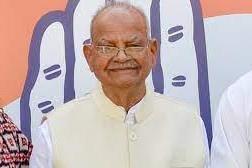
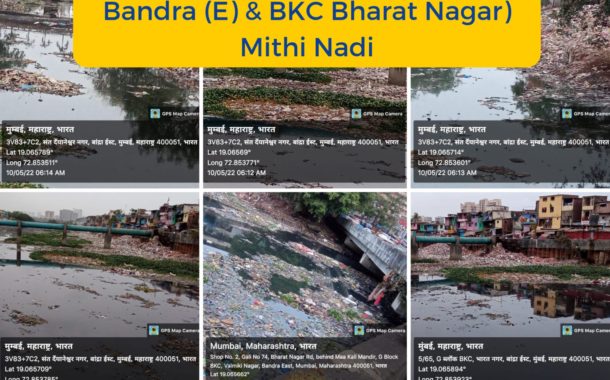
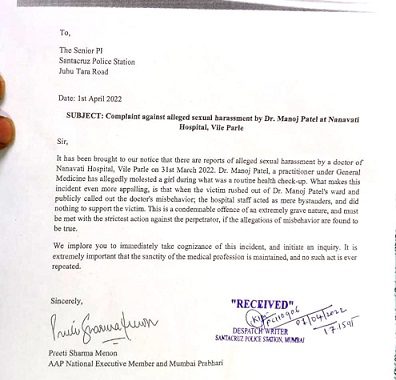
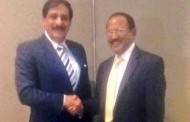
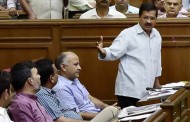
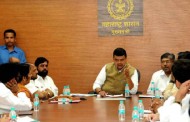
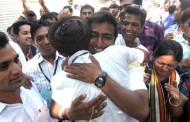
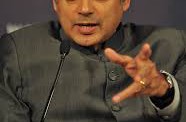
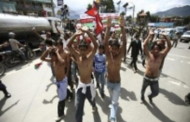
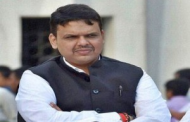
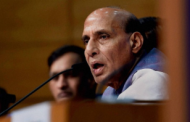
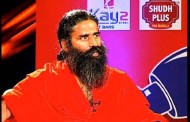
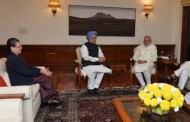





Recent Comments